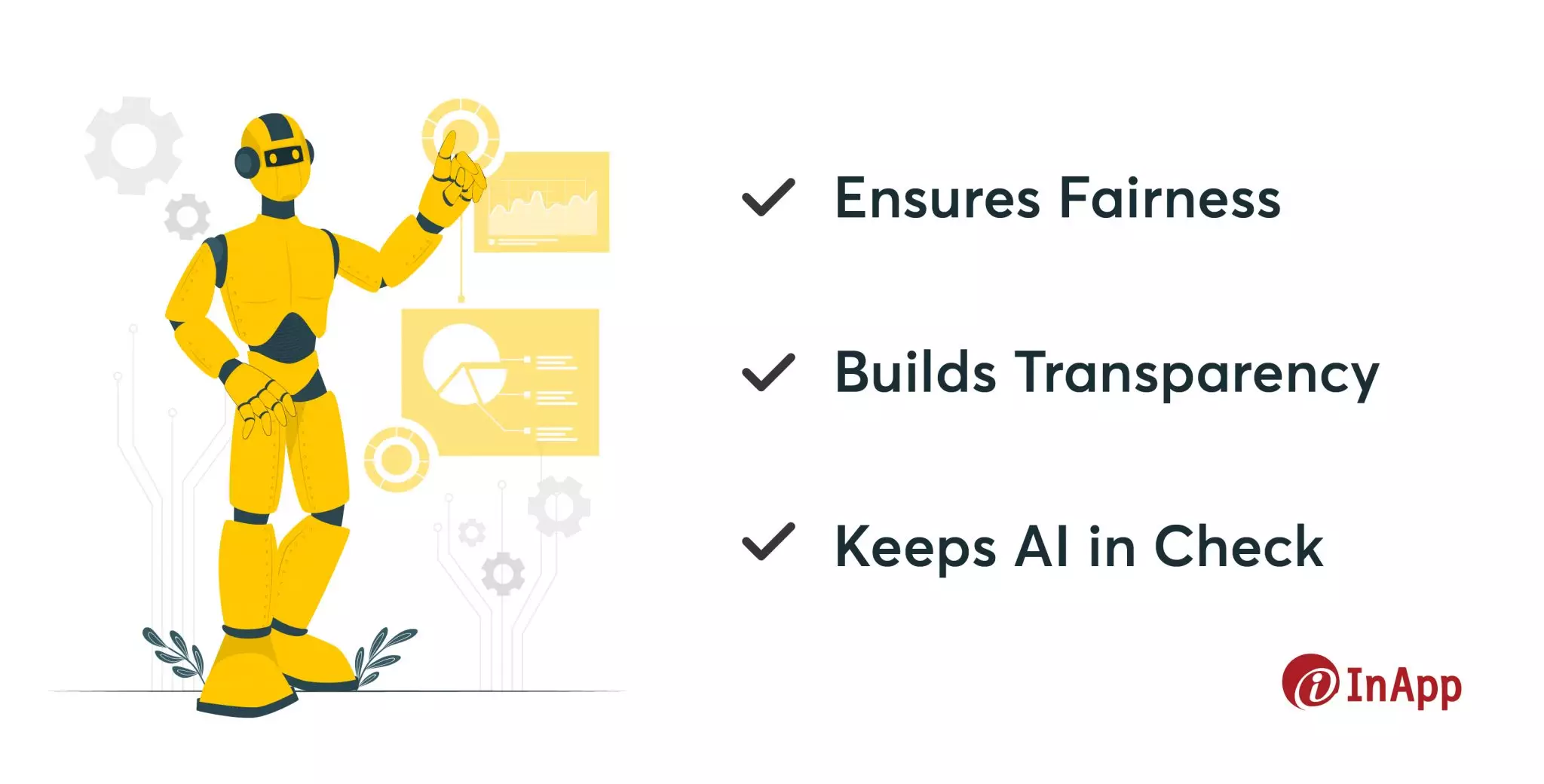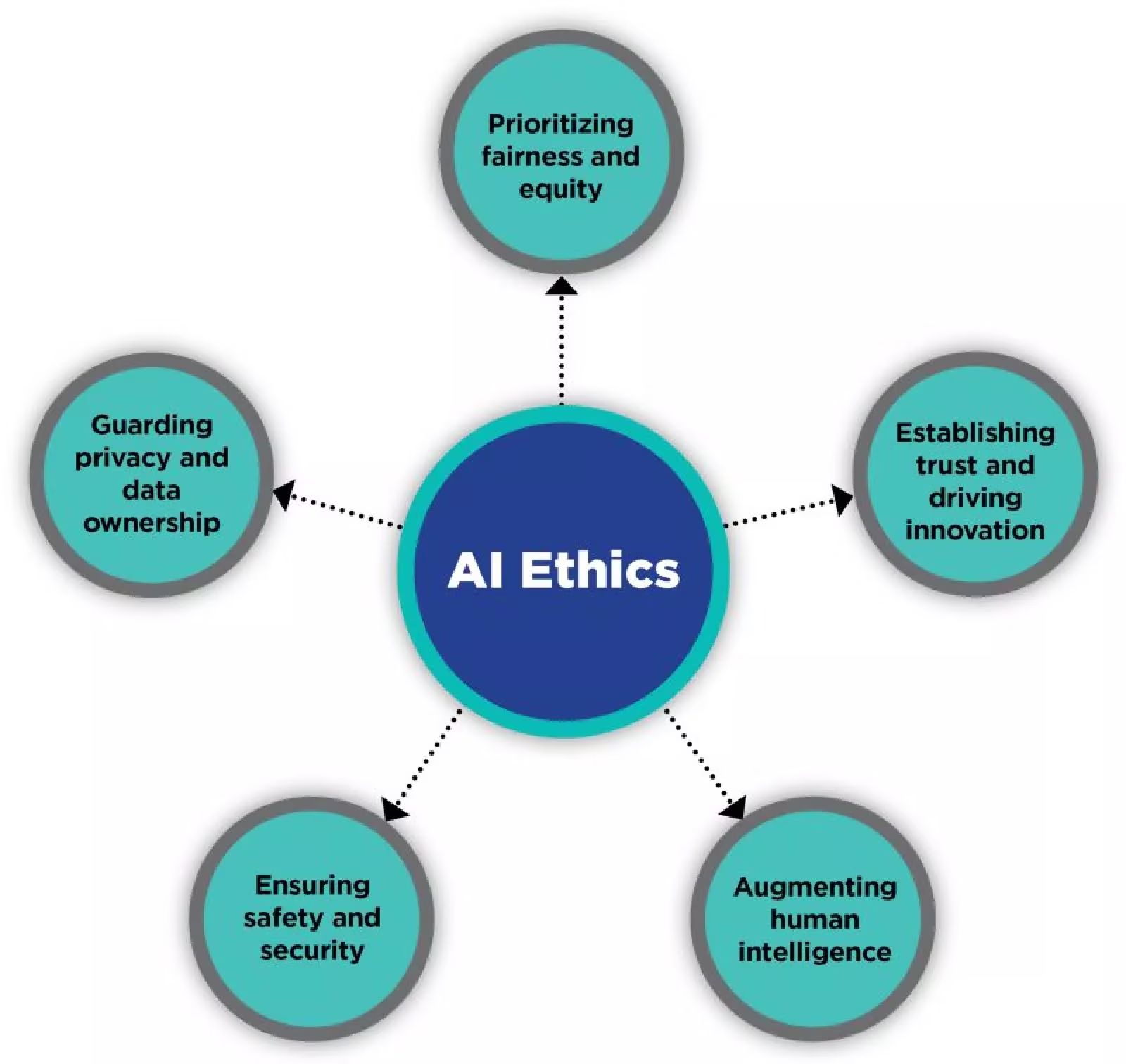
As artificial intelligence (AI) continues to transform various industries, its application in automating travel insurance claims has gained significant attention. AI-driven claims automation offers substantial benefits such as increased efficiency, reduced processing times, and cost savings. However, these advancements come with ethical challenges that need careful consideration.
Central to the discussion are concerns about fairness, transparency, and accountability in AI decision-making processes. As AI systems take on a more prominent role in evaluating and processing claims, it becomes crucial to scrutinize their design and implementation to prevent biases and ensure clear, justifiable decisions.
This article delves into the ethical considerations surrounding the use of AI in travel insurance claims automation. It explores the importance of upholding fairness, maintaining transparency, and ensuring accountability in an increasingly automated world. By addressing these issues, we can harness the full potential of AI while safeguarding ethical standards in the insurance industry.

Source: Ethical Considerations in AI Development – Importance of Responsible AI Practices – InApp
In travel insurance, ethical considerations play a crucial role in ensuring the fair and transparent use of artificial intelligence. Establishing ethical frameworks in AI that prioritize fairness, transparency, and accountability is essential for the development and deployment of AI systems in this sector.
When it comes to travel insurance claims, unique ethical challenges arise with AI. One significant challenge is the potential for bias in automated decision-making. AI algorithms analyze vast amounts of data and make decisions based on patterns and correlations. However, if the data used to train these algorithms is biased, it can lead to discriminatory outcomes.
Another ethical consideration in AI for travel insurance is the responsible handling of customer data. AI systems rely on large datasets to learn and make predictions. This data often includes sensitive personal information, such as medical records and travel history. Robust data protection measures are essential to safeguard the privacy and security of policyholders’ information.
Addressing these ethical considerations is necessary to foster trust, uphold integrity, and safeguard the rights of travelers within the domain of travel insurance. By incorporating ethical frameworks into AI systems, the travel insurance industry can ensure that AI is used responsibly and ethically, benefiting both the insurance companies and the policyholders.

Understanding bias in AI is crucial for ensuring fair decisions. Biases, such as racial and gender biases, can significantly influence the outcomes of AI-driven decisions. In travel insurance claims automation, these biases can lead to disparities in claim approvals and payouts.
To mitigate biases, AI systems must be designed and optimized to make fair and equitable decisions, fostering trust in decision-making processes. One effective approach is ensuring diverse and representative datasets during the training phase. By incorporating data from various demographics, AI systems can learn to make fair and unbiased decisions.
Continuous monitoring and auditing of AI algorithms are also vital to identifying and rectifying biases that may emerge over time. Prioritizing fairness and actively working to mitigate biases can enhance the reliability and trustworthiness of AI decision-making in travel insurance and beyond.

Source: What is AI transparency? A comprehensive guide (zendesk.com)
Transparency in AI algorithms has indeed become a significant concern in recent years. The lack of transparency can lead to unintended consequences, erode trust in AI systems, and hinder understanding of final decisions. Legal and regulatory frameworks are increasingly addressing the need for transparency in AI to ensure accountability and fairness.
Case studies in various industries, including travel insurance, have highlighted instances where opaque AI decision-making resulted in unfair outcomes. These examples emphasize the importance of transparency in AI algorithms to mitigate such adverse effects and build trust with users.
Organizations are encouraged to prioritize explainability in their AI systems by providing clear explanations for the decisions made. This approach not only enhances transparency but also helps individuals understand and evaluate AI-generated outcomes effectively.

Source: Trust and Responsibility with AI | InterSystems
AI-driven claims automation faces many issues related to ethical considerations. The travel insurance sector has continuously worked on these considerations to recognize and resolve these issues for the effective deployment of AI approaches. Some of the common issues and their efficient solutions in AI-driven claims management are briefly explained below:
Bias and fairness are critical ethical considerations in AI-driven claims automation. Strategies such as diverse training data and bias detection tools are indeed crucial to mitigate biases. Vigilant monitoring and proactive measures are necessary to ensure fairness in decision-making processes.
Privacy and data security are paramount concerns in AI applications, including AI-driven claims automation. Compliance with regulations like GDPR and industry-specific guidelines is essential to protect personal data. Robust measures are required to uphold the trust of policyholders and insurers.
Clear roles and responsibilities among AI developers, insurers, and regulators are essential to address ethical concerns in AI-driven claims automation. Transparency in decision-making processes and learning from ethical dilemmas are vital for ethical compliance.
Various key strategies are incorporated to foster ethical AI practices in the travel insurance sector. Here are the brief details of these strategies:
The designing of ethical AI systems incorporates fairness and transparency from inception. Furthermore, it adheres to industry standards and best practices such as ISO guidelines.
Continuous monitoring is necessary to emphasize the importance of ongoing assessment and audits of AI systems. In addition, the involvement of ethics committees and regulatory oversight ensure ethical compliance throughout the AI system’s lifecycle.
A user-centric approach should be taken to prioritize the needs and interests of the end-users when developing AI systems. Along with this approach, conducting user research and feedback sessions to understand their concerns and preferences is helpful.
Providing comprehensive training to AI developers and stakeholders on ethical considerations and responsible AI practices promotes this initiative. It also encourages continuous learning and staying updated with emerging ethical guidelines and regulations in the field of AI
Fostering collaboration between AI developers, data scientists, and domain experts to ensure ethical decision-making throughout the development process. Furthermore, establishing clear lines of accountability and responsibility for the ethical implications of AI systems is helpful.
Nordic Insurance Company is implementing ethical AI in claims automation. The solution focuses on empowering human agents (human-centric AI) and gives them control over the AI. Additionally, the client was involved in decision-making and had transparency in the system, avoiding a “black box” approach. The main focus on human oversight and ethical considerations suggests they’re taking steps towards responsible AI.
Swiss Re, a leading insurance firm acknowledges the potential risks associated with AI use, including data privacy and the need for responsible development. It highlights the importance of data literacy and responsible AI practices to ensure humans remain in control. Swiss Re is prioritizing “Trustworthy AI” as a concept for the future of insurance, implying a focus on its responsible implementation.

Source: Comprehending Ethical AI Challenges and its Solutions (xenonstack.com)
The future of ethical AI in travel insurance shows promising advancements driven by emerging technologies like explainable AI and AI auditing. These innovations aim to significantly enhance transparency and accountability in AI decision-making processes within the travel insurance sector. As ethical considerations gain prominence, there’s an increasing focus on integrating these technologies to shape the future landscape of travel insurance AI.
Predictions suggest a shift towards more robust ethical frameworks and standards tailored specifically for AI in travel insurance. These frameworks are designed to align with evolving regulatory landscapes and societal expectations, ensuring responsible and fair deployment of AI technologies. Despite these advancements, several challenges remain.
Technical hurdles, particularly the complex nature of risk assessment and policy underwriting, pose significant obstacles to the effective implementation of ethical AI practices in travel insurance. Overcoming these challenges is crucial to realizing the full potential of AI in improving operational efficiency and customer satisfaction while maintaining ethical standards.
Moreover, building trust and acceptance of AI-driven processes among stakeholders and customers in the travel insurance domain remains a formidable challenge. Ensuring transparency in decision-making and addressing concerns related to data privacy and security are pivotal to fostering trust in AI systems.
To successfully integrate ethical AI in travel insurance, collaboration among AI experts, insurance professionals, and regulators is essential. This collaborative effort is necessary to navigate the complex landscape of ethical considerations, protect consumer interests, and uphold the integrity of the insurance industry.
While the future holds promising advancements in ethical AI for travel insurance, addressing technical complexities and building trust are critical steps towards realizing its full potential in transforming the industry. Ethical frameworks and collaborative efforts will play a pivotal role in shaping the ethical deployment and acceptance of AI technologies in travel insurance.
In conclusion, the ethical considerations in AI-driven claims automation for travel insurance are of paramount importance. The integration of artificial intelligence in claims automation has been a significant advancement. However, it must be accompanied by a strong ethical framework to ensure fairness, transparency, and accountability.
By prioritizing ethical considerations, stakeholders can uphold the integrity of their operations and foster a more inclusive insurance environment. This involves regular audits of algorithms, proactive bias mitigation, and clear communication of the AI’s role in the claims process. By implementing, stakeholders can create a more ethical landscape for AI-driven claims automation in travel insurance, ultimately benefiting both industry and policyholders.